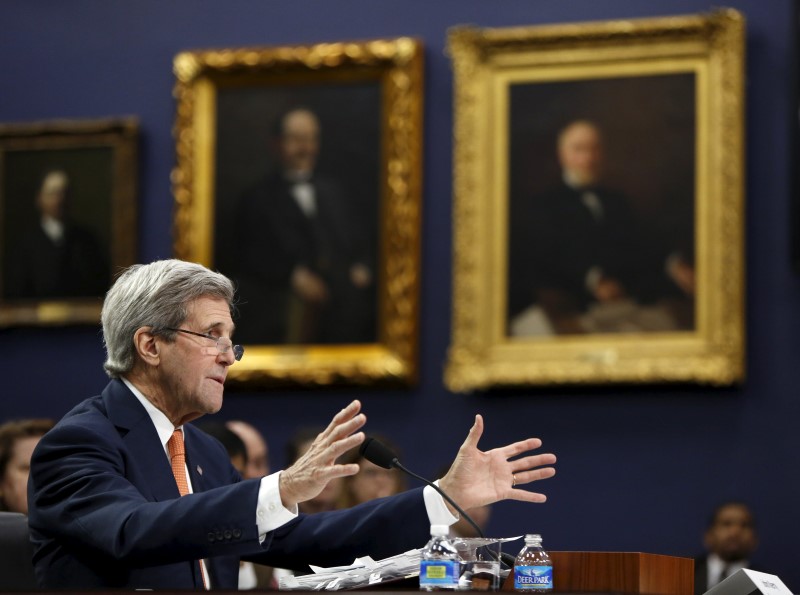By Patricia Zengerle and Arshad Mohammed
WASHINGTON (Reuters) - U.S. Secretary of State John Kerry urged Congress on Thursday not to rush to renew the Iran Sanctions Act (ISA), a broad U.S. law imposing sanctions over Iran's nuclear and missile programs that expires at the end of the year.
"I wouldn't advise that for a number of reasons," Kerry told the House of Representatives Foreign Affairs Committee at a hearing on the State Department's budget.
Many lawmakers have been pushing to renew the ISA quickly, to send a message to Tehran that Congress is still taking a hard line over its nuclear program, missile development and human rights record.
The effort could set up another showdown over Iran between the administration and the Republicans who control Congress.
Every Republican in Congress, and several of President Barack Obama's fellow Democrats, opposed the agreement announced in July in which Tehran agreed to curb its nuclear program in exchange for sanctions relief.
House Republicans early this month passed legislation to restrict Obama's ability to lift sanctions under the nuclear pact. The Senate has not taken it up and Obama has threatened a veto, and lawmakers are discussing alternatives.
"If the administration isn't supportive of this renewal (of the ISA), not only are we preventing the possibility of a snapback, but from the standpoint of myself and many of the members of this committee, we're also giving relief on missiles," said Representative Ed Royce, the Republican committee chairman.
Iran tested ballistic missile technology in October, prompting the United States to impose new sanctions in January, but many members of Congress want a stronger response.
Kerry said lawmakers should allow more time to see how Iran responds to the international nuclear agreement, which went into effect only last month.
He argued that sanctions can be imposed quickly if Iran is found to violate terms of the nuclear deal or other agreements.
Kerry was asked about reports that Iran will enjoy a windfall of up to $150 billion from the nuclear agreement as money frozen under the sanctions regime is released. He said the total likely would be about one-third of that level, and currently is far lower.

"Our estimates are it's somewhere in the vicinity of $50 to $55 billion at some point in time but it's way below that right now." Kerry said. "And in fact, they are complaining about the slowness with which there has been a process of repatriation."